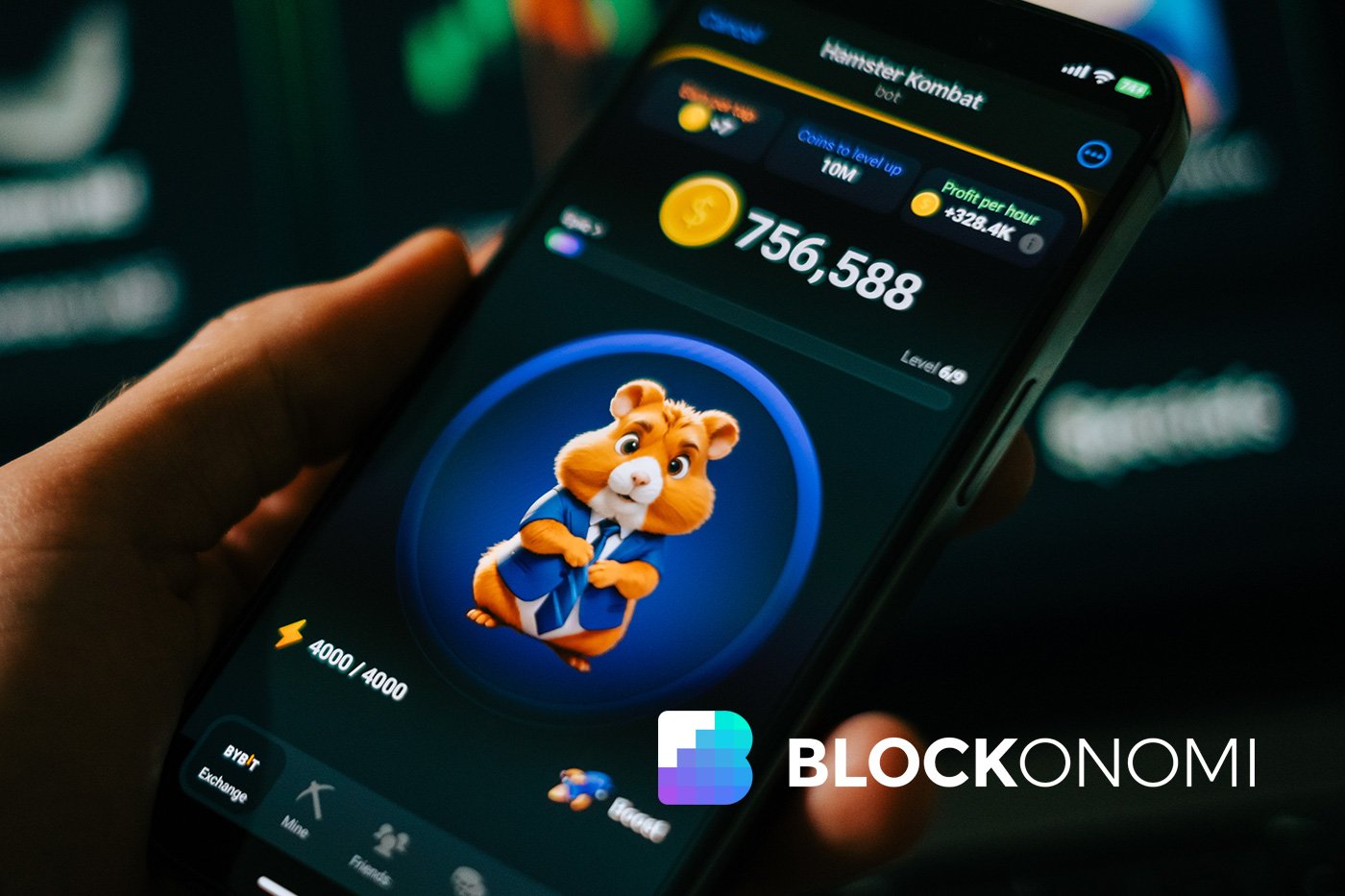TLDR
- TON blockchain gaming has grown significantly, with about 20% of Telegram users now playing games monthly.
- Hamster Kombat claims to have over 300 million users and is preparing for a large token airdrop.
- Experts predict a potential drop-off in users for many clicker games after their token generation events.
- Hamster Kombat has launched 3 new mini-games and is building a platform combining Web2 and Web3 games.
- Binance has hinted at listing Hamster Kombat’s $HMSTR token, indicating growing interest from major exchanges.
The Open Network (TON) blockchain has seen a significant surge in gaming activity, with Telegram-based games like Hamster Kombat leading the charge.
According to Inal Kardan, TON Foundation’s Gaming Lead, approximately 20% of Telegram’s 950 million monthly active users are now playing at least one game per month, a twenty-fold increase from December 2024.
Hamster Kombat, a tap-to-earn game where players manage a virtual cryptocurrency exchange, has emerged as a frontrunner in this new wave of blockchain gaming.
The game claims to have amassed over 300 million users, with 50 million daily active players. This explosive growth has caught the attention of major cryptocurrency exchanges, with Binance hinting at a possible listing of Hamster Kombat’s $HMSTR token.
The game’s popularity stems from its simple yet addictive gameplay, where users tap to earn in-game currency and invest in various aspects of their virtual exchange.
Players can earn passive income by purchasing different parts of the exchange, each providing a certain number of tokens per hour. This mechanic has kept millions of players engaged, with many anticipating a potentially lucrative token airdrop.
Hamster Kombat recently expanded its offerings by launching three new mini-games within its ecosystem. This move aligns with the team’s stated goal of building a gaming platform that combines Web2 and Web3 experiences to support and extend the utility of their $HMSTR token.
However, the sustainability of such clicker games remains a topic of debate among industry experts.
Andrew Saunders, Chief Growth Officer at SKALE Labs, predicts a “fairly sizable user drop-off post-Token Generation Event for most of these games.” Saunders argues that many users are primarily driven by “airdrop speculation” and may lose interest once the reality of token distribution sets in.
Despite these concerns, Hamster Kombat appears to be taking steps to build a more sustainable ecosystem. The game’s whitepaper outlines plans for future developments, and the team has hinted at a “season two” even before fully revealing the details of their first season.
Dear CEOs 🐹,
As we mentioned in our updated Whitepaper, we are building a gaming platform combining web2 and web3 games that will support and extend the utility of the $HMSTR token!
🎮 Starting today, we will be adding new games so that you have a variety of choices and can…
— Hamster Kombat (@hamster_kombat) August 6, 2024
The broader implications of this gaming boom on the TON blockchain are significant. Kardan envisions a future where more complex “mid-core” games will emerge on the platform. He cites Gatto, a Tamagotchi-like game on Telegram, as an example of the type of games that could gain traction in the coming months.
The integration of blockchain technology with casual mobile gaming has created new opportunities for both players and developers. Joseph Cooper, CEO of Earn Alliance, suggests that playing Web3 games could potentially become a more lucrative side hustle than traditional gig economy jobs like driving for Uber.
As the ecosystem matures, the focus is likely to shift from simple clicker games to more engaging and sustainable gaming experiences.
The success of platforms like Hamster Kombat in maintaining user engagement post-token generation will be crucial in determining the long-term viability of this new gaming paradigm.





